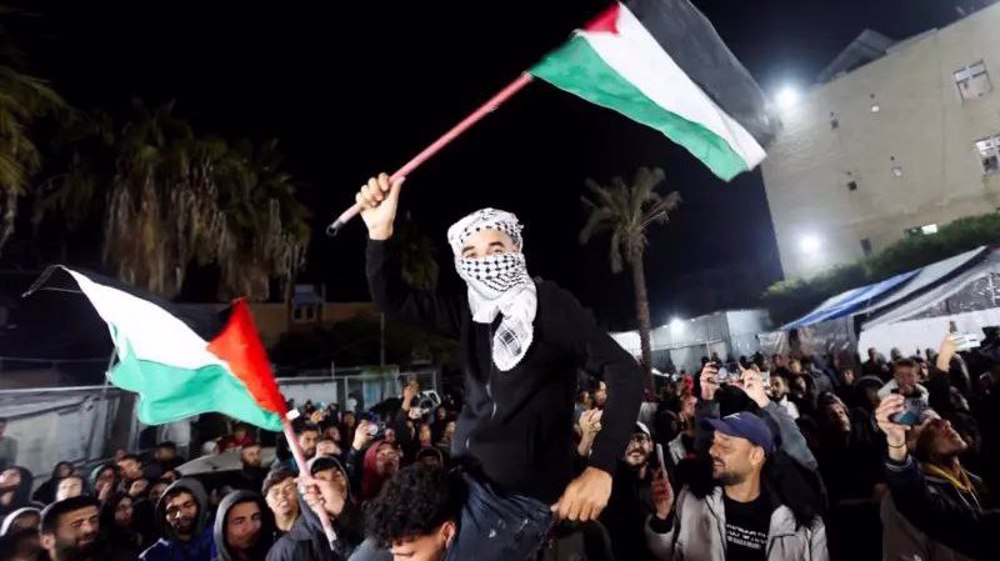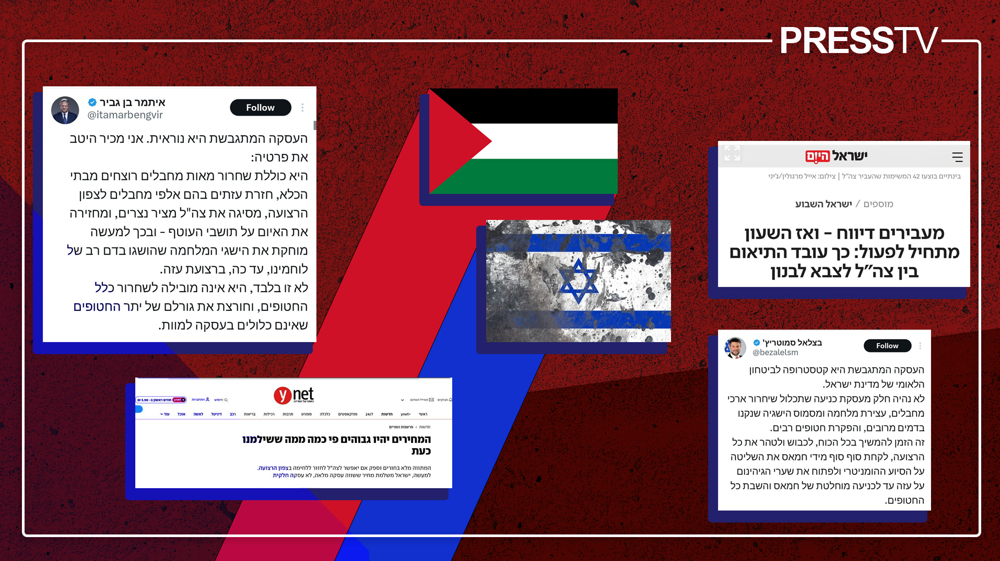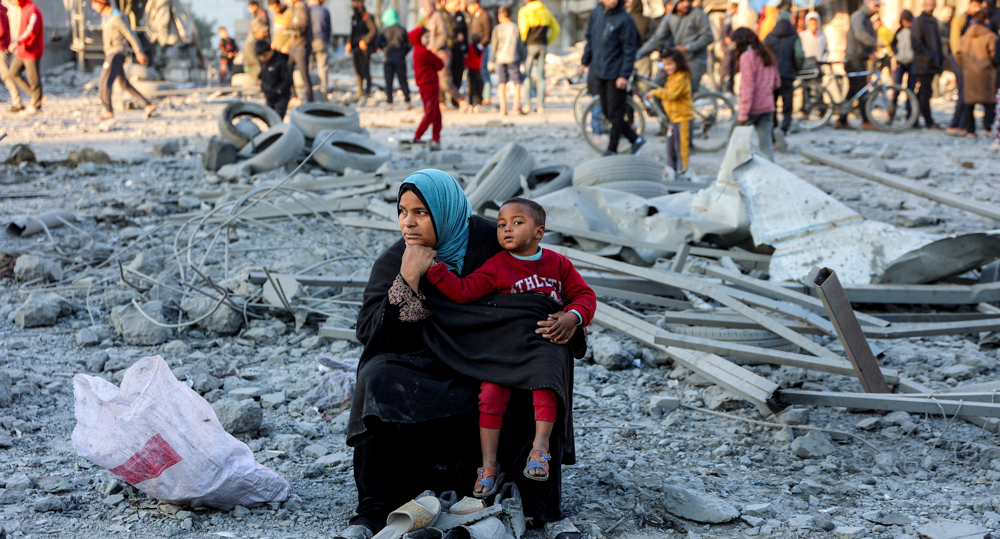Israeli, Turkish presidents talk in sign of warming ties
Israeli President Reuven Rivlin has made a phone call to his Turkish counterpart Recep Tayyip Erdogan in a sign of warming ties following six years of strained relations.
Rivlin said in a statement on Wednesday that he had spoken with Erdogan to thank him for sending a condolence letter over the death of three Israelis during a recent bombing in the Turkish city of Istanbul.
“I want to thank you … for your help in bringing the victims back,” Rivlin said during the phone conversation.
Erdogan, for his part, said "we have to stand together" and "increase our cooperation against" what he called terrorist acts.
Turkish Prime Minister Ahmet Davutoglu had already sent a letter of condolence to his Israeli counterpart Benjamin Netanyahu.

On Thursday, the Turkish TV channel Kanal7 quoted Netanyahu as saying that Tel Aviv wanted to normalize relations with Ankara. He said Israel has always maintained a policy of rapprochement with Turkey.
The announcement came as Israeli forces shot and killed two Palestinians over an alleged stabbing attack in the occupied West Bank.
It also came as official data showed the number of illegal Israeli settlement projects in the occupied West Bank had spiked by 26 percent in 2015 comparing with the previous year.
Settlement expansion
According to the data released by Israel’s Central Bureau of Statistics, Tel Aviv began to work on 1,913 new settlement units in 2015, compared to 1,516 in 2014.
The United Nations Human Rights Council is slated to vote on Thursday on a resolution denouncing the building of settlement units, calling on Israel to stop such an activity.
More than half a million Israelis live in over 230 illegal settlements built since the 1967 Israeli occupation of the Palestinian territories of the West Bank and East al-Quds (Jerusalem).
The Palestinians want the territories as part of a future state, with East Jerusalem (al-Quds) as its capital.
In January, Erdogan said Turkey needed Israel in the region as the two sides indicated their enthusiasm to normalize relations.
"Israel needs a country like Turkey in this region. We, too, should admit that we need Israel. This is a regional fact," he told journalists on a flight back from an official visit to Saudi Arabia.
His comments came few days after he said he sought a presidential system similar to Adolf Hitler's in Germany.
After drawing international attention and domestic dismay, his office said Erdogan’s comments had been taken out of context by the media.
Turkey and Israel also see eye to eye on the Syria conflict and the need to topple President Bashar al-Assad.
Ankara is suspected of actively training and arming Takfiri militants operating inside Syria and buying smuggled oil from them. Israel has set up hospitals near the border with Syria to treat militants injured in the fight with Syrian troops.
Angry rhetoric and reconciliation
Israel and Turkey were traditionally close allies but relations began to decline after Erdogan became prime minister in 2003.
The Turkish leader rode on a wave of popularism after storming out of a heated debate on the Gaza war with Israel's former president Shimon Peres at the Davos forum in 2009.
In September 2010, Turkey suspended its military ties with Israel and expelled the Israeli envoy from Ankara over Tel Aviv’s refusal to apologize for its killing of 10 Turkish nationals aboard an aid vessel bound for Gaza.
However, Turkish officials said in mid-February that Turkey and Israel were moving closer to striking a reconciliation agreement.
Back then, it was reported that the agreement would resolve the issue of compensations and facilitate an exchange of envoys between Ankara and Tel Aviv as well as negotiate restart of gas exports from Israel to Turkey.
Hamas hails Gaza’s victory over Israel in genocidal war, its forcing enemy to agree to ceasefire
'Capitulation': Israeli officials and media concede Gaza defeat as truce unfolds
'Gaza has won': Social media users react to ceasefire with mix of relief, joy
Iran seeks South Korea’s assistance for AI, fiber-optic projects
VIDEO | Iran's 'Eqtedar' (Power) maneuver
Israel hits HTS military target in Syria for 1st time since fall of Assad
VIDEO | Press TV's news headlines
Israel has slaughtered 13,000 students in Gaza, West Bank















 This makes it easy to access the Press TV website
This makes it easy to access the Press TV website